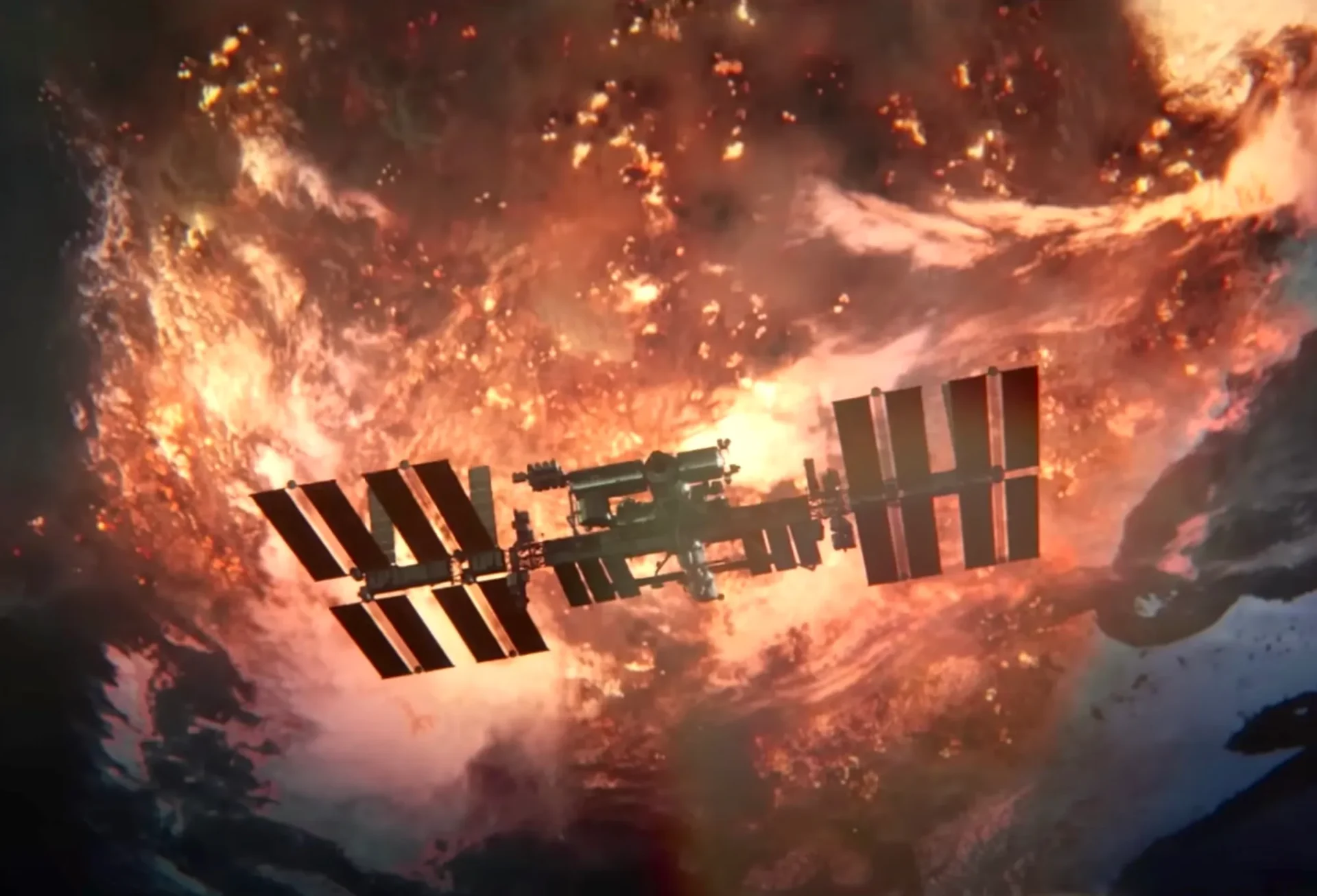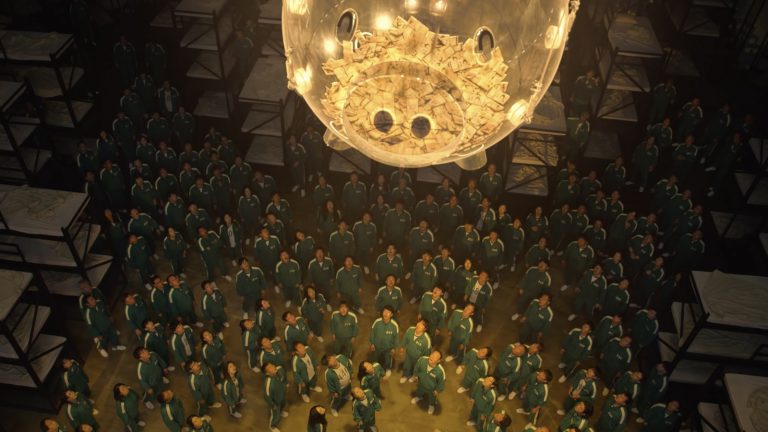There’s something endlessly enticing in the contradictory setting of all space films; the vastness of the unforgiving cosmos can only be as intimidating as the claustrophobic metal hulls floating there to keep you alive. It’s enough to drive any person mad, so much so that this psychosis-in-waiting has, on more than one occasion, been the subject of focus for contained thrillers set in the vast emptiness of the galaxy. I.S.S., the latest film to capitalize on this space madness, opts not to do so with chemical spills or alien stowaways but rather through the uncertainty of allegiance in the face of a calamity, you can only see from a rounded window about 250 miles above the planet.
The premise of the film is fairly straightforward. The International Space Station, a longstanding symbol of American-Russian collaboration overcoming all political squabbles, employs an equal number of scientists from each nation—three American astronauts and three Russian cosmonauts. These six explorers float in harmony above the Earth’s atmosphere, upholding this peaceful camaraderie in the name of groundbreaking research that would benefit all humankind. That is, of course, until the latest Yankee newbie arrives and, not a day later, becomes the first to notice that an all-out nuclear war has begun between these two superpower nations back home. With that, the Americans have received orders to prioritize seizing control of the I.S.S. from their Russian cohorts by any means necessary, leaving them to wonder if the same orders have been transmitted against them.
Gabriela Cowperthwaite has, at this point, directed just as many narrative features as she has documentaries, but her career will almost certainly forever be associated with her non-fiction film Blackfish, about the horrors that await neglected orcas at SeaWorld. What that film showed was the director’s unwavering strength in pulling tension from something as simple as amateur-recorded footage—a skill hardly applicable to a fictional story set in a floating satellite. Surprisingly, though, Cowperthwaite finds in this confined space the same sort of tension borne from silence rather than action, this time utilizing the black-and-white security footage onboard the station to frequently set the tone for our observation of the depravities of human behavior in the clutches of paranoia. I.S.S. never explores beyond the frontiers of its basic thriller premise, which serves the film as both an accomplished mission and a distress call for help.

On the one hand, Cowperthwaite goes into this film expecting to do no more than eke simple thrills out of a story with humanist overtones, leaving a lot of room for I.S.S. to focus on the invariable lack of trust between these scientists that crisscrosses between national borders; no matter where they’re from, the film posits, people are prone to assuming the worst out of those standing next to them. It’s a strategy that is largely carried by the six frantic performances, particularly those from Ariana DeBose (just one flop away from “Fire your agent” territory), Pilou Asbæk (here far more complex than he was on Game of Thrones), and John Gallagher Jr. (unable to escape these confined doom scenarios after 10 Cloverfield Lane, apparently).
Aside from DeBose, who stays reliably trustworthy as the audience conduit into the story, the rest of the cast plays around quite effectively with their characters’ shifting dispositions that would understandably come from a combination of months without gravity and not knowing whether the home you’ve been tasked with fighting for is even there to return to.
That being said, if the actors succeed at all in communicating the horror of the situation, it’s all the more impressive because the script is utterly content to run on autopilot. Nick Shafir’s screenplay is quick to jump into the action, which leaves little in I.S.S. to make us care about these people or, consequently, make their inevitable drifts feel meaningful in any way. DeBose’s Dr. Kira Foster joins the I.S.S. one day; after some quick introductions, cheap foreshadowing, and the customary “party scene” (which here amounts to 10 seconds of the crew spinning her around while she takes a swig of whiskey), the nuclear blowout begins literally the next morning.
In that sense, I.S.S. only becomes heartbreaking in a sense that relies on your basic human empathy for these characters as people rather than because you’re made to care about the dynamics that (don’t) form between them. Granted, this is a valid approach to take if you want to explore the depths of the audience’s willingness to sympathize with people they know little about, but it’s clear that Cowperthwaite and Sharif were going for something far less cerebral and more conventional here, with mixed results.
That I.S.S. succeeds in some of its modest goals of both entertaining and provoking questions of tensions across borders is an achievement in itself; for a January release, this may as well be the Mona Lisa. The modesty of Gabriela Cowperthwaite’s vision merely needs to be complemented by some more complexity in the characterization department to ensure that the cumbersomely repetitive shots of sterile corridors put the same sense of caution and hysteria into the minds of both the protagonists and those watching. In space, no one can hear you scream; it doesn’t matter what language you’re screaming in as long as we care about why you’re doing it.




![Fighter [2021]: ‘NYAFF’ Review – Paints a Light on the Unseen Battles](https://79468c92.delivery.rocketcdn.me/wp-content/uploads/2021/08/Fighter-2021.jpeg)

![50 Years Later: Flesh [1968]](https://79468c92.delivery.rocketcdn.me/wp-content/uploads/2018/09/vlcsnap-error218.jpg)

